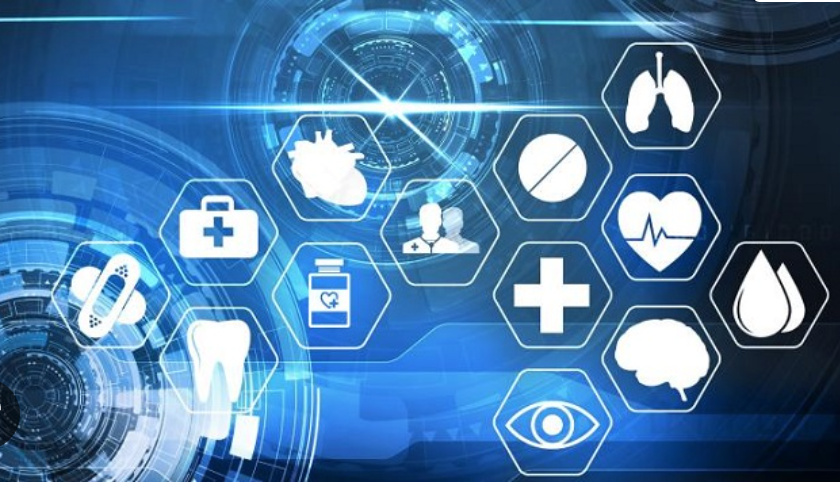“AI for Health: Predicting Risks & Tracking Diseases for a Safer World.”
Introduction
The use of artificial intelligence (AI) in healthcare is rapidly changing the way we diagnose, treat, and manage diseases. AI-driven solutions are being used to track diseases, predict risks, and provide personalized treatments for better health outcomes. AI has the potential to revolutionize medical practice by providing more accurate diagnoses, more precise treatments, and improved patient safety. AI can also help health systems save money by reducing the cost of care, improving efficiency, and reducing the burden on healthcare providers. As AI technology continues to develop and become more widely used, the impact it has on healthcare is likely to be significant.
How AI Is Being Used to Track and Predict the Spread of Diseases
The threat of infectious diseases is a major concern for the world’s health and safety. Fortunately, with the help of Artificial Intelligence (AI), we now have the tools to better track and predict the spread of diseases.
AI is being used to analyze the data collected from public health surveillance systems and develop models that help identify the risk of a disease outbreak. AI-driven technologies allow us to quickly identify, monitor and respond to emerging health threats. With AI, we can recognize patterns and trends in the data that were previously undetectable, helping us to better understand the dynamics of a disease and its potential spread.
AI can also be used to predict the spread of diseases. AI-powered models can look at a range of factors, such as population density, climate, air quality and travel patterns, to create a forecast of the potential spread of a given disease. This predictive power helps us to take preventive measures, such as targeted vaccinations, to mitigate the risk of an outbreak.
AI is also being used to develop tools for early-warning detection of diseases. AI-powered algorithms can detect signs of a disease before it is diagnosed by medical professionals, allowing for more timely interventions. This early detection can help reduce the spread of the disease and increase the chances of successful treatment.
The potential of AI in helping to tackle the global threat of infectious diseases is immense. By using AI to track and predict the spread of diseases, we can better protect ourselves and our communities from the risks of infectious diseases.
Exploring the Potential of AI to Help Fight the Spread of Infectious Diseases
The spread of infectious diseases is one of the most pressing health challenges facing the world today. From the global pandemic of Covid-19 to the ever-present threat of malaria, infectious diseases represent an immense threat to human health and well-being. However, there is hope. With the emergence of artificial intelligence (AI) as a powerful tool for data analysis and decision making, we have an unprecedented opportunity to fight the spread of infectious diseases.
AI technology can help us understand the nature of infectious diseases, track their transmission, and identify the best strategies to contain their spread. For example, AI-powered algorithms can analyze the data from health reports and hospital visits to identify high-risk areas and predict the outbreak of an infectious disease. This allows us to take proactive measures to mitigate the spread of the disease and better protect vulnerable populations.
AI technology can also be used to develop more effective treatments and vaccines for infectious diseases. By analyzing data from medical studies and clinical trials, AI can help researchers identify promising targets for drug development and optimize existing treatments. AI-assisted drug development could potentially drastically reduce the time and cost of drug discovery and development, making treatments for infectious diseases more widely accessible.
Finally, AI can be used to create personalized health care plans for individuals. By analyzing the individual’s health records and lifestyle data, AI can provide personalized recommendations for managing and preventing the spread of infectious diseases. These plans could be tailored to the individual’s unique risk factors and lifestyle, offering a more effective way to protect against the spread of infectious diseases.
In sum, AI technology holds immense promise for helping us fight the spread of infectious diseases. By leveraging AI-powered analysis and decision making, we can better understand the nature of infectious diseases, develop more effective treatments, and create personalized health care plans. AI can be a powerful tool in our fight against infectious diseases, and it is time that we start to embrace this technology and explore its potential.
Examining the Role of AI in Improving Diagnosis Accuracy
The medical profession is evolving, and artificial intelligence (AI) is playing an increasingly important role in improving diagnosis accuracy. AI can provide physicians with more accurate and comprehensive diagnoses than ever before, thus ensuring patient safety and improving outcomes.
AI can be used to analyze patient data in more detail than a human could. AI systems can detect patterns in data that would be missed by humans and can even detect subtle changes in patient data that could be indicative of a health problem. AI can also help physicians in the decision-making process by providing them with more detailed information about a patient’s medical history and current condition.
The use of AI in medicine can also improve accuracy by reducing errors and increasing the accuracy of diagnoses. AI algorithms can detect errors in medical data, such as incorrect coding or incorrect diagnoses, and can alert physicians to potential errors. This can lead to fewer misdiagnoses and better patient outcomes.
Finally, AI can help reduce healthcare costs by providing more accurate diagnosis and treatment plans. By accurately diagnosing a patient’s condition, AI can help physicians identify the most effective treatment plans and can help reduce the number of unnecessary tests and procedures. This can save both time and money for healthcare providers and patients alike.
The use of AI in medicine is an exciting and rapidly expanding field, and its potential to improve diagnosis accuracy is immense. AI has the potential to revolutionize the healthcare industry and can help ensure that patients receive the most accurate and effective treatments possible. We are just beginning to scratch the surface of what AI can do, and its potential to improve diagnosis accuracy is limitless.
Understanding the Benefits of AI in Enhancing Healthcare Efficiency
In recent years, the healthcare industry has been revolutionized by the introduction of artificial intelligence (AI). AI-driven technologies have the potential to revolutionize healthcare delivery, improve healthcare efficiency, and save lives. As AI becomes increasingly prevalent in the healthcare industry, it is important to understand the benefits of AI in enhancing healthcare efficiency.
First and foremost, AI can drastically improve the accuracy and speed of diagnosis. AI-driven technologies are able to recognize patterns that may be overlooked by the human eye, allowing for more accurate diagnoses and earlier intervention. This can significantly reduce healthcare costs and improve patient outcomes. Furthermore, AI can enable healthcare providers to better manage their workloads and prioritize the most critical cases.
Second, AI can help to improve the accuracy and speed of data processing. AI can quickly process large amounts of medical data, including medical records, laboratory tests, and patient histories. This enables healthcare providers to quickly gather the necessary information to provide more accurate diagnoses. Additionally, AI can help to automate tedious tasks such as recordkeeping and data entry, freeing up healthcare providers’ time and resources to focus on more important tasks.
Third, AI can help to reduce medical errors. AI-driven technologies can recognize patterns and identify potential errors in the medical process. This helps to reduce the risk of misdiagnosis, incorrect treatments, and other medical errors. Additionally, AI can be used to develop proactive strategies to prevent medical errors from occurring in the first place.
Finally, AI can help to improve patient care. AI-driven technologies can quickly analyze patient data and provide healthcare providers with personalized recommendations for treatment. This not only helps to improve patient outcomes, but also helps to create a more positive experience for the patient.
The potential benefits of AI in enhancing healthcare efficiency are clear. As AI continues to become more prevalent in the healthcare industry, it is important to understand the potential benefits of AI in improving healthcare efficiency, accuracy, and patient care. By harnessing the power of AI, healthcare providers can create a better healthcare system that is more efficient, accurate, and patient-focused.
Investigating the Impact of AI on Healthcare Costs
The potential of artificial intelligence (AI) to revolutionize healthcare is immense. AI technology can be used to streamline processes, improve accuracy and reduce costs. As the technology continues to evolve, the benefits to the healthcare system become even more evident. From reducing medical errors to improving diagnosis and treatment, AI has the potential to significantly reduce healthcare costs.
It is clear that AI has the power to revolutionize healthcare. By using AI to automate processes, streamline administrative tasks, and improve accuracy and efficiency, healthcare costs are reduced. AI-driven algorithms can analyze vast amounts of data, providing healthcare providers with insights that can be used to improve diagnosis and treatment. AI can also be used to detect medical errors and reduce medical costs.
As AI is adopted by healthcare providers, the cost savings can be seen across the healthcare system. AI-driven technologies can reduce errors, improve accuracy, and speed up the process of delivering care. This can lead to a decrease in healthcare costs, allowing more people to access healthcare services.
The potential of AI to reduce healthcare costs is evident. However, the implementation of AI technology must be done with care. With the right implementation of AI, healthcare providers can realize the potential of AI to optimize processes and reduce costs. By embracing the power of AI, healthcare providers can reduce healthcare costs and improve the quality of care.
Conclusion
The use of AI in healthcare has revolutionized the way we track diseases, predict risks, and provide preventative care. AI technology has enabled healthcare professionals to access vast amounts of data, which can be used to identify patterns and trends in disease and health risks. AI algorithms can also be used to detect early signs of disease, allowing for timely interventions that can help reduce the burden of illness. AI tools are also being used to provide personalized health advice and treatments tailored to individual patients. As AI technology continues to evolve, it promises to bring further improvements in how healthcare is delivered and managed.


